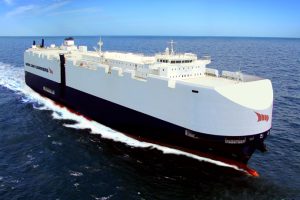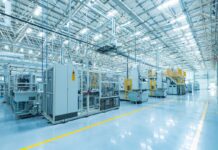
The Volkswagen Group has decided the use environmentally friendly transportation for its vehicles in an effort to improve the environmental balance of its marine transport fleet.

As of 2019, the Group will transport its vehicles with two LNG-powered Siem Car Carriers vessels on routes between Europe and North America.
Additionally, the carmaker also revealed that it intends to transfer vehicle and material transport in Europe increasingly from trucks to lower-emission means of transport such as ships in the future.
“The Volkswagen Group is shouldering its responsibility for the environment. This not only applies to our cars but also to our production and logistics. We are pooling all our efforts to improve environmental compatibility in Logistics under the term Green Logistics,” said Wolfram Thomas, Head of Group Production.
“By commissioning the two LNG-powered freighters for the route between Europe and North America, Volkswagen Group Logistics is forging ahead with environmentally compatible, resource-efficient transport.“
The two LNG-powered vessels have a capacity to carry about 4,500 vehicles, which is comparable to conventional transatlantic freighters. Both ships will be equipped with a 12,600 kW engine developed by MAN Diesel & Turbo.
Thomas Zernechel, Head of Group Logistics, said the move will reduce emissions per ship and year by up to 25% in the case of CO2, up to 30% in the case of NOx, and up to 60% in the case of particulate matters (PM). SOx emissions will be cut by as much as 100%.
According to him, the use of a dual-fuel marine engine with direct injection and exhaust gas treatment will also help reduce emissions.
“Compared with other means of transport, marine shipping is one of the most efficient possibilities. Volkswagen Group Logistics already transports half of the vehicles produced by sea. We are continuously working on the optimization of our marine transport systems. The chartered vessels on which a decision has already been taken are the first milestone,” Mr Zernechel added.
“The possibility of changing other vehicle transport vessels chartered by Volkswagen over to LNG operation will depend on the availability of the necessary infrastructure. Apart from LNG as an alternative fuel, we are also working on other projects which will continuously make our logistics processes more environmentally compatible.”




















